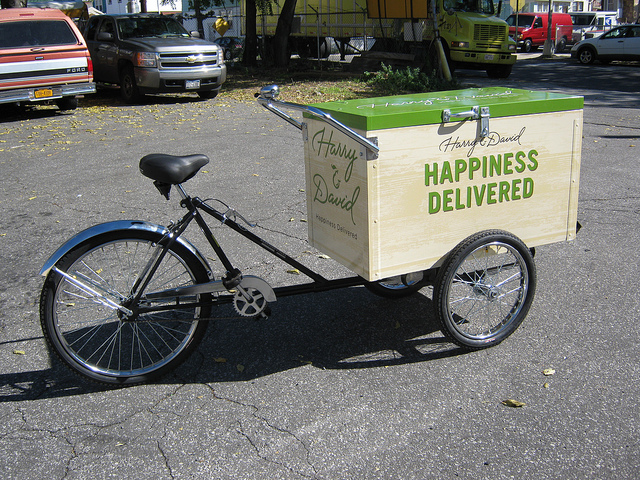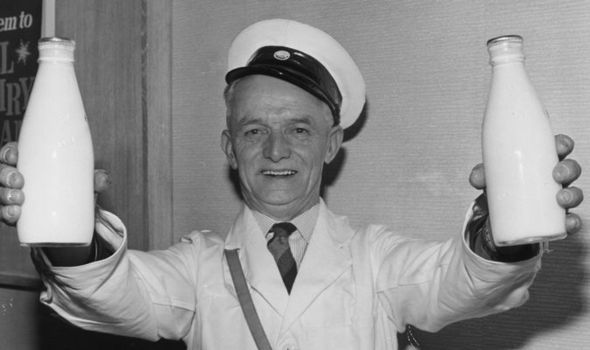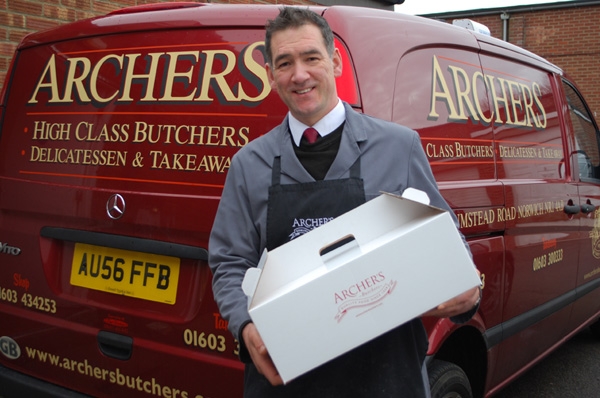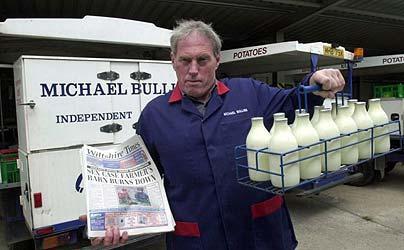I’ll tell you how this started: we were eating breakfast at the Angel Hotel when I spotted the excellent Longley Farm yogurts included in the buffet, which for me triggered a chain of memories about teenage years. Apart from buying Longley farm yogurts, cottage cheese and other products in the supermarket, my mum used to get them delivered by the milkman.
Then I got to thinking about milkmen. Maybe this is a career of the past; after all, how often do you see milk delivered these days? Not very often, such that empty milk bottles on the doorstep and the mini crate with the sign saying how many pints you wanted are a thing of the past. Not difficult to see why: the muscle and purchasing power of supermarkets mean we now buy our pintas in huge plastic bottles at a fraction of the price and eschewed paying a small premium for the personal service of yesteryear.
It didn’t take much digging to find plenty of laments bemoaning the demise of the milkman, particularly in rural areas where people can’t get out so much. Seems there were fewer than 9,000 of them left in January 2015, and presumably the numbers have declined still further since then (see here, here and here.)
They are a slice of the old life, a culture rapidly dwindling into the distant memory on the alter of cheap products, but it wasn’t just milkmen. My mum used to have bread delivered by her local baker, a chap who was nearing retirement age even when I was a nipper. He got up early, baked the bread and delivered it to his regular customers. The business died with him, since nobody wanted to take on the long hours for very little reward.
Doubtless there was a time when many other local shops did the same, and not just food deliveries either. The old trades were truly a labour of love, but one that coalesced the communities – the milkman and the baker would be on first name terms with their customers, would know all the gossip and could almost choose what you needed without needing to be told. Now that is true personal service.
The milkman featured in the Telegraph article linked above delivered milk, eggs, bread, local honey and cheese, though presumably the more astute milkmen could take on a delivery service with all local trades people, and maybe pockets of such personal service entrepreneurs will stand the test of time in some local communities – but the chances are that families on a tight budget won’t pay 79p per pint when they can buy it for 49p or less in their local supermarket.
Ironic then that the big growth industry in the supermarket sector is home-delivered groceries, for which people are prepared to pay a delivery charge. Why? Because people’s lives are too busy, such that they can’t spare the time to tour their nearest massive hypermarket in search of the weekly family shop. Convenience is delivered to your door for a price – and that price includes not picking fresh products by using your eyes and nose, as customers once did, and still do in large parts of the continent of Europe.
The other price is that this will not be a local trader or even his delivery boy on a bike, in the manner of Granville in Open All Hours but employees of a national company who are looking for ticks in boxes and don’t care tuppence for what you’re cooking or which ingredients you need.
All of which leads me to an interesting thought: Granted there have always been a smattering of local suppliers who provide this service to clients, but I think we will turn a full circle and small local shops will return to delivering foodstuffs to local residents in the form of collectives.
After all, it works for takeaways, both stand-alone and through providers of apps like Just Eat. Who’s to say there won’t be a future collective of farm shops or greengrocers, local butchers, bakers, delis, cheesemongers, fishmongers, small grocers, off-licences and other small purveyors of high quality produce – maybe even a new generation of milkmen too? A new way of serving customers and an alternative to Tesco and Sainsburys.
Why not an iPhone app to request my rib-eye steak from Millins of Tiptree and best local potatoes and salad ingredients from the farm shop at Inworth, all the better to make my son steak and chips when he comes to visit? The only downside is that you would have to establish each local community as a separate entity and a hub of local shops to participate in the scheme – and there may well be something similar already running, for all I know.
It wouldn’t work everywhere, but where a collective of customers appreciated their local shops and swore to uphold their independence and fight back against the appalling tide of giant supermarkets, then there may be an economic case for an alternative to deliveries from huge distribution centres and a return to local delivery of local ingredients. Who knows, maybe someone can help me out here?






